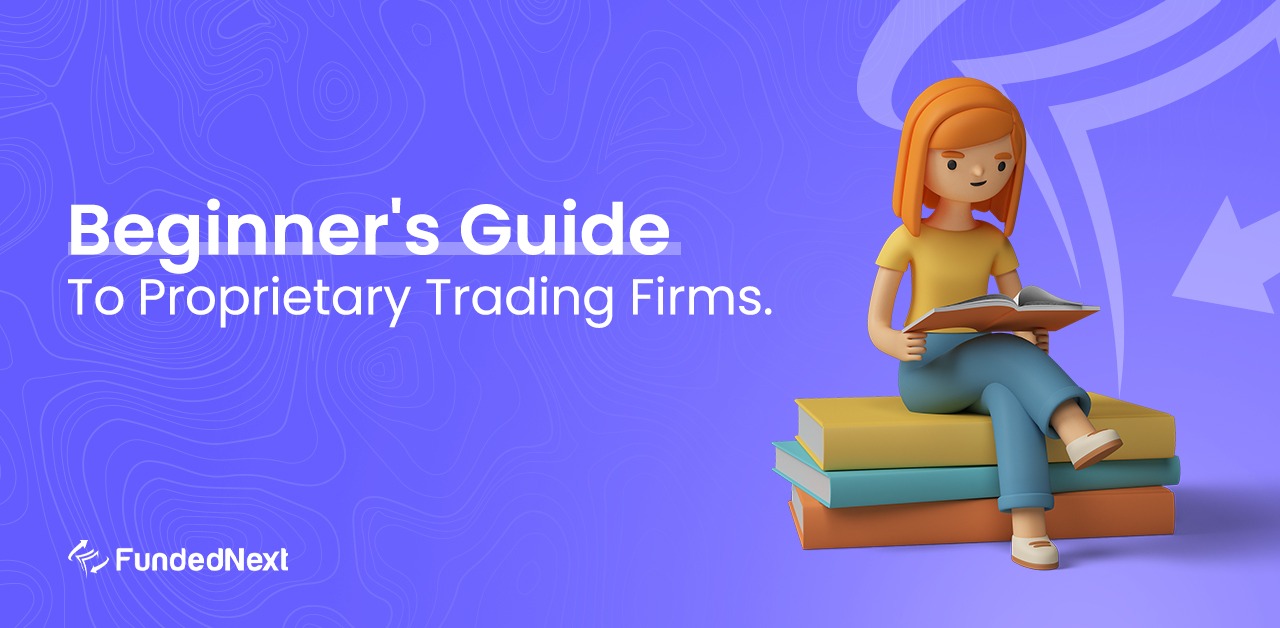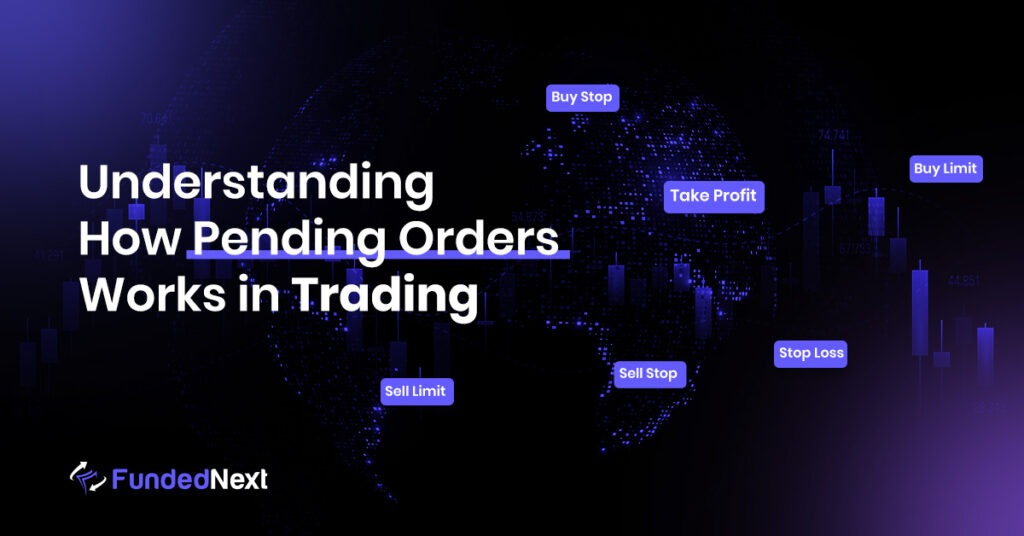Proprietary trading has certainly caught the attention of enterprising traders looking for a rich career in the trading world. We will look at all elements of prop trading work at a prop shop, as well as the benefits and drawbacks, in this comprehensive beginner’s guide to proprietary trading.
Prop firms, often known as prop shops, are one of the hottest topics in trading right now, and for good reason. The purpose of proprietary trading firms is to become successful in the long run. There are no consumers to please, and the company provides traders with all of the funds they need to trade.
These two fundamental ideas serve as the foundation of the lucrative and flexible world of proprietary trading, enabling you high levels of profit and freedom. There is no danger of losing your money, and trades can be conducted from anywhere, at any time.

What Is Proprietary Trading?
From the introduction above, you might already have a basic understanding of how proprietary trading works. However, to be in brief, proprietary trading is the system when trades are performed using the firm’s capital rather than on a client’s orders against commission payments. This means that the firm provides the prop trader with more trading cash in order to enhance their profits.
Access to the fund is not limited by an applicant’s financial status, which is a significant plus for newcomers. If you’re just starting out, you don’t need a lot of money to work with a renowned proprietary trading firm.
In addition to the lower risk to individual traders, most proprietary trading firms will protect a trader from large losses by limiting capital drawdown according to the risk tolerance of the fund.
What Makes Proprietary Trading Different From Retail Brokers?
For the past few years, it has been noticed that many forex traders have left retail brokers and become independent in trading with funds from proprietary firms. We have identified reasons why traders choose a proprietary fund over a retail broker.
- Traders tend to be attracted by the idea of very low-risk trading combined with the possibility of huge returns.
- As proprietary funds provide opportunities for the growth of the traders, this makes the firms more popular among the traders. Moreover, this is because traders assume no risk of suffering a massive loss in exchange for a consistent and regular income.
A trader who proves himself or herself capable will be given access to the fund’s funds to trade after paying an initial evaluation charge. The trader invests and risks his or her own money with a retail brokerage. In addition to the risk formation being flipped on its head, the relational connection between a prop fund and the broker/client relationship also plays a key role in such cases. A trader in a prop fund works as a service contractor rather than a customer of a broker.
- The earnings part of the prop fund model allows far more flexibility and freedom. Prop funds use a profit split commission plan to pay their traders.
The outcome of the trader’s performance is shared by both the trader and the fund. As a result, in addition to not losing money when trading, all prop traders participate in the fund’s earnings. Trading balances are not deducted when payouts are made.
Profits are normally given out on a monthly basis, so traders who join and profit can depend on a consistent income to improve their situation.
- While the bonuses and regular returns are appealing, the capital growth rate is likely the most convincing benefit of trading through a prop fund. When trading within the boundaries of a broker, you must choose whether to withdraw funds or increase your account. Both occur at the same time in a prop fund.
The proprietary trading fund’s business model aims to benefit from trading. If a trader makes a profit, the fund will support him or her by providing extra capital. The potential rate of growth of a trader is determined by his or her ability rather than the initial capital input, as it is with a broker. - Each trader in a prop fund is hand-selected based on a set of strict criteria. The company rewards and encourages traders who it considers to be mature and capable. Members of the fund are professionals who are continually improving their talents.
What Kinds of Traders do Prop Firms look for?
With a little research and analysis of your strengths and weaknesses, you may select the appropriate one to meet your needs. Some prop funds are very rigid, while others give their traders more flexibility. If you know and understand your trading character, it should be simple to determine which systems would suit you best and which would be a terrible idea.
While each firm’s level of independence will vary, there are some broad standards that apply to all funds. If a trader does not follow these universal standards, they will be cautioned or thrown out of the fund as soon as they are brought in.
How Do You Choose A Proprietary Firm For Trading
Use the following list as a guide for proprietary company features and their significance whenever you are contemplating any prop firm, in addition to understanding your trading personality and trade statistics very well.
- Tradable Assets
Check the list of tradable assets to see what is and isn’t allowed. Take note of the limitations and assess if you will be able to abide by the rules and work well within them.
- Trading hours
Get to know about their trading hours, check if they have any restrictions or mandatory inactive periods such as during the major economic releases, major news events, and so on.
- Trading account
Before funding a trader, many fund providers need a demo account trading test. Unlike other fund providers in this sector, we at FundedNext supply funds based on your trading history. To get funded by FundedNext, a trader does not have to pass any kind of test. So you’ll get funded right on your live account.
- Holding Position
By the end of each trading day, many firms want to have a flat portfolio. Those firms prefer a day trading method over holding assets overnight. If you like to keep deals open for longer periods of time, make sure the firm you’re thinking of joining allows it.
- Trade on news
There are many firms out there that don’t allow trading on the news. If you’re a swing trader or long-term trader you must do a deep focus on it.
- Payout
You must check out if the firm clears the payout on time if there is any restriction or objective you have to meet to request payout.
- Maximum loss / daily loss
All firms have a maximum loss limit, and some even have a daily maximum loss limit. This is a good thing because most traders don’t know when to stop when they’ve had a series of terrible deals. When evaluating a prop fund be sure you can adjust your trading risk to match their needs and that you have enough margin to trade efficiently within this range.
- Leverage or buying power
All funds have a limit on their buying power, but there are a few different ways to do so. Some funds impose a limit on open positions, while others impose a limit on total daily trading volume. Check to see if the firm limit policy is appropriate for your trading frequency.
- Risk parameters
Each program has its own set of criteria and features that you must review to ensure that you are aware of and prepared to function under these conditions.
- Advanced dashboard
An Advanced dashboard is as essential as the other criteria to look for in a Proprietary Firm. It is very important for you to get proper and necessary information right onto your dashboard. Make sure your desired firm has a top-notch dashboard to ease your trading experience.
This is the dedicated dashboard for our clients at FundedNext.
Conclusion
Although it might seem to be a tiring task to find a perfect proprietary firm, with the above-mentioned parameters checked the task of finding the suitable one would be a lot easier.






12 Responses
Hey there, You’ve done a fantastic job. I’ll certainly digg it and personally suggest to my friends. I am confident they will be benefited from this website.
Thank you so much for appreciating our effort.
Can I simply say what a relief to search out somebody who actually is aware of what theyre talking about on the internet. You definitely know easy methods to deliver a problem to gentle and make it important.
Thanks
Thanks for this post, I am a big big fan of this internet site would like to continue updated.
welcome dear
You know this is the first blog I read before joing this company. I have withdrawn profit from my account three times, but still coming back to say thanks to you.
Congratulations on your great achievement. We are so pleased to see you here with us for so long.
I am grateful for this content as it sheds light on the experiences of successful traders and their journey to success. It has inspired me to work harder and strive for excellence.
We are glad to hear that.
This is so simple
Yes